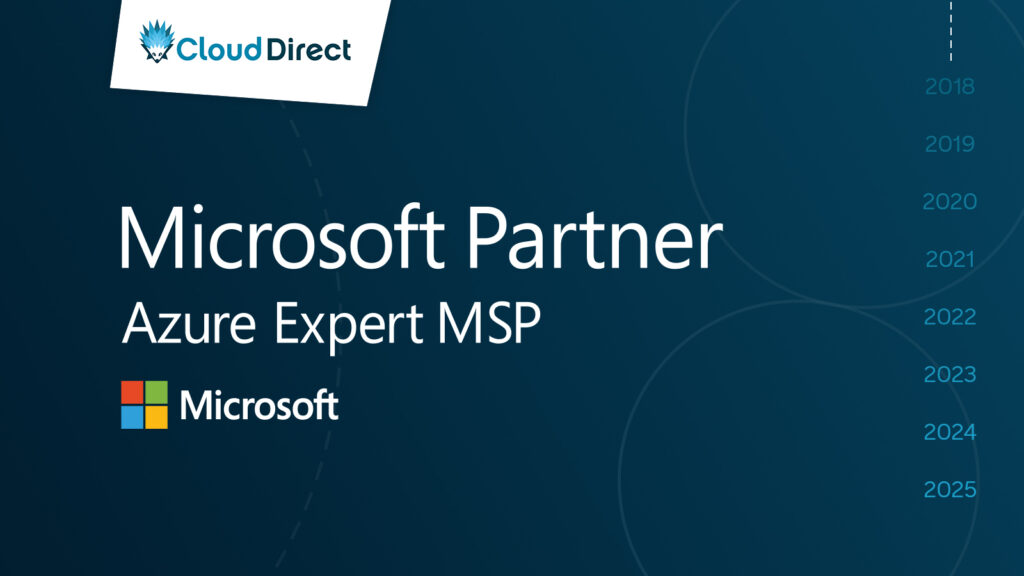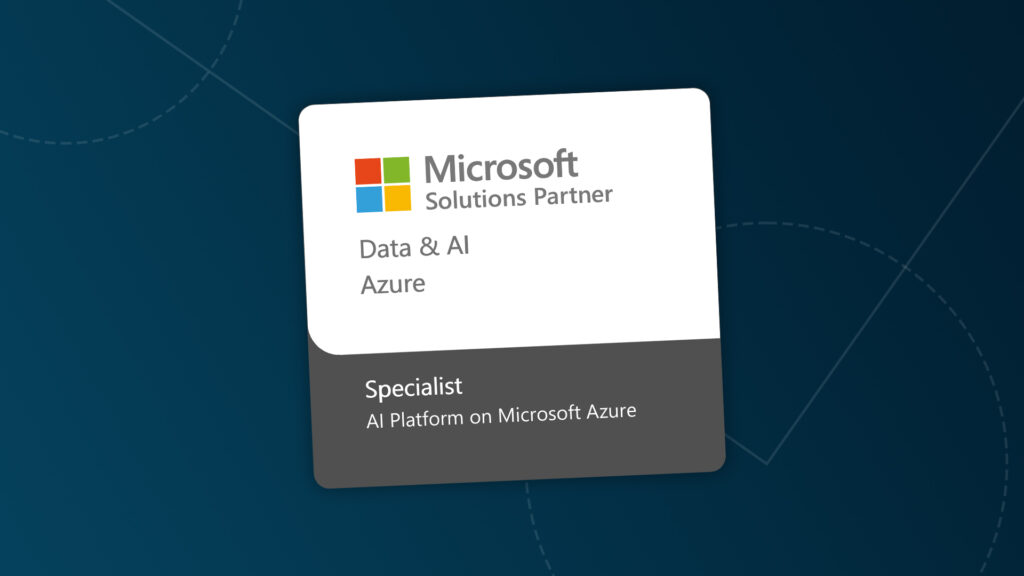
Ignite is Microsoft’s flagship technical event. The annual event provides the latest updates on Microsoft Cloud as well as a look at the future product roadmaps. Ignite is attended by more than 100,000 people globally and provides insight into how digital technology is shaping and will shape the world around us. We have curated the latest updates to help you digest the headlines from the event:
Azure Container Apps now in preview
Azure Container Apps, a fully managed, serverless container service built for microservices that scales dynamically based on HTTP traffic, events or long-running background jobs, is now in preview.
Users can now build and develop modern apps using their favourite programming language or framework and deploy containerized apps to a fully managed serverless container service without needing to manage complex infrastructure.
Azure Logic Apps updates
Microsoft is announcing updated preview capability and general availability to Azure Logic Apps Standard features to help enterprise integration between mission critical systems in the cloud, on-premises and in a hybrid way with runtime available on Azure, Azure Arc and locally.
Updates and enhancements to Azure DevOps
Developers can plan smarter, collaborate better and ship faster with Azure DevOps suite of modern dev services. Several updates and enhancements to DevOps include:
- Developers can secure their deployments to Azure through OpenID Connect integration between Azure Active Directory (Azure AD) and GitHub Actions.
- The DevOps Workflow Generator tool is designed to help customers visualize their entire DevOps toolchain and find ways to improve it. The free tool is valuable for any organization or developer seeking to understand their own DevOps process and how to increase efficiency.
Virtual Machines Selector helps customers find the right Azure Virtual Machines
The Azure Virtual Machines portfolio continues to expand. Now, customers can quickly select the right virtual machine (VM) based on their specific workload and budget using the new virtual machines selector. The new virtual machines selector, now generally available, lets customers specify the category of workload they want to deploy in addition to VM technical specifications, disk storage preferences, region and OS.
Virtual machines selector is now available in 26 different languages.
Introducing Mesh for Microsoft Teams
Mesh for Microsoft Teams will enable new experiences with personalized avatars and immersive spaces where users can connect with presence and have shared immersive experiences.
Mesh for Microsoft Teams bridges the gap between physical and digital, empowering users to connect across devices wherever they choose to live and work from. These experiences will be available as part of Teams on PC, mobile and through mixed-reality headsets.
Teams users will be able to access these Microsoft Mesh-enabled capabilities in preview in the first half of 2022.
Microsoft Teams platform enhancements and new collaborative apps
New updates to the Teams platform make it easier for people to streamline key workflows in Teams.
Today Microsoft is adding:
- Enhanced features for Power Virtual Agents.
- Teams chat connectivity with Dynamics 365 sales.
- Makers soon will be able to embed Teams chat functionality within apps built with Microsoft Power Apps.
- Azure Communication Services Teams Interoperability soon will be generally available.
Additionally, the redesigned Teams App store, launching later this month, makes finding the right app simple and streamlined with an updated layout and experience for finding apps in Teams.
Microsoft Teams webinar enhancements and additional broadcasting capabilities enable more engaging external events
New webinar and broadcasting capabilities in Microsoft Teams make it easy to set up and deliver professional, engaging experiences to internal and external audiences. These new capabilities include:
- Virtual green room
- Enhanced controls for managing what attendees see to minimize distractions and keep the audience engaged during an event.
- Co-organizer is the ability to assign multiple organizers for webinars and meetings.
- The new Q&A in Teams feature enables a more structured question and answer experience.
- Isolated audio feed enables producers to create an audio mix using isolated feeds from each individual.
- Cvent, the leading events and hospitality management platform, is now integrated with Teams, enabling customers to use Cvent to manage event lifecycle, including registration and agenda management, and deliver the virtual meeting and event experience via Teams.
New Microsoft Teams chat features
New features in Microsoft Teams chat support asynchronous collaboration so teams can keep conversations and work projects moving forward.
- Chat with self enables users to send themselves a message, such as quick ideas or reminders.
- Chat density feature lets users customize the number of chat messages they see on the screen with different modes.
- The variety of reactions users can add to a chat message has been extended, enabling users to choose from more than 800 3D emojis, up from six that are currently available.
- Delay delivery of messages enables users to select a specific time to send a message.
- The new search results UI in Teams chat helps users stay on top of information you need.
These new features will roll out between now and early 2022.
New enhancements to Windows 365, including Windows 11 support on Business Edition
Several new enhancements for the Windows 365 service include:
- Support for Windows 11
- Configurable grace option
- Support for Azure Active Directory (Azure AD)-joined Cloud PCs
- Endpoint Analytics resource reports in Microsoft Endpoint Manager
- Endpoint Analytics connection reports in Microsoft Endpoint Manager
Microsoft Defender or Cloud now natively protects multi-cloud environments
Native support for multi-cloud environments is available through the extension of Cloud Security Posture Management (CSPM) and Cloud Workload Protection capabilities to Amazon Web Services (AWS). This cohesive cloud security offering, formerly named Azure Security Center and Azure Defender, is now called Microsoft Defender for Cloud.
Microsoft Defender for IOT now secures enterprise IOT devices
Microsoft Defender for IoT (formerly Azure Defender for IoT) is an agentless solution that is being extended to discover and secure enterprise IoT devices like Voice over Internet Protocol (VoIP) phones, smart conferencing systems and building automation.
Strengthening privacy and security on Azure with Confidential Computing and Trusted Launch
Azure Confidential Computing helps meet security and privacy needs by protecting data-in-use, allowing for added security and multi-party computation without giving access to data.
New updates and enhancements include:
- Azure confidential virtual machines (VMs)
- Worker nodes in Azure Kubernetes Service (AKS) are now available in preview
- Trusted launch for all Azure Generation 2 VMs with Secure boot and vTPMs to protect against advanced and persistent attack techniques is now generally available.
Microsoft Endpoint Data Loss Protection and Insider Risk Management for MacOS in preview
Microsoft Endpoint Data Loss Protection (DLP) and Microsoft Insider Risk Management are now available on the MacOS platform in preview.
Multiple enhancements added to Microsoft Information protection to protect Microsoft 365 data
Automatic labeling of files is now more robust within Microsoft Information Protection (MIP) via machine learning-based trainable classifiers.
Microsoft extends Zero Trust capabilities with new Identity security features
Several security enhancements have been made to help customers bolster their security posture and adopt a Zero Trust approach and include:
- Conditional Access device filters
- Conditional Access app filters
- Conditional Access overview dashboard and templates:
- Anomalous token and token issuer detections
- Continuous Access Evaluation (CAE)
- One-click enablement for risk data extensibility
- Conditional Access for workload identities
- Additional authentication method policies for apps and workload identities (in preview)
Microsoft Defender for Business coming soon to preview
Microsoft Defender for Business is a new endpoint security solution, coming soon to preview, which helps organizations with up to 300 employees protect themselves against cyberattacks. This enterprise-grade solution is specially built for small- and medium-sized businesses and targets security threats, including malware and ransomware, across Windows, macOS, iOS and Android devices.
Microsoft Defender for Cloud Apps extends Data Protection with App Governance
Microsoft Defender for Cloud Apps, formerly known as Microsoft Cloud App Security, is a cloud access security broker (CASB) that enhances the security posture of an organization’s cloud apps by identifying and combatting cyberthreats. New capabilities for governance, application coverage and additional platform visibility are now generally available to address the growing need to protect cloud apps and data.
In addition, Defender for Cloud Apps includes security for more than 26,000 cloud apps, covering all major cloud app use cases. Microsoft expanded its native API integration portfolio to include mission-critical cloud apps like Slack, Smartsheet, Zendesk and OneLogin. Defender for Cloud Apps also has extended the discovery of shadow IT to MacOS devices deployed within the environment via integration with Microsoft Defender for Endpoint.
Microsoft Endpoint Manager now provides cross-platform Endpoint Management and security
Microsoft is expanding the breadth of its endpoint management solution with new features and capabilities in Microsoft Endpoint Manager. Updates, now in preview, include:
- Linux desktop management to give the ability to configure conditional access from Azure Active Directory (Azure AD), and apply and manage security policies from Microsoft Defender for Endpoint.
- Endpoint Manager to manage macOS devices beyond package (PKG) files.
- Added improvements to Office security baselines for Windows and Windows Update security baselines to help administrators simplify device and app compliance workloads.
- Microsoft Connected Cache to transparently and dynamically cache Microsoft content (updates, drivers and apps) on Configuration Manager servers to help save bandwidth and complement the existing peer-to-peer caching capabilities.
New Microsoft Sentinel innovations across the full lifecycle
To aid overworked security operations teams, significant updates have been made to Microsoft Sentinel across the full security operations lifecycle. These updates, in preview, include:
- More than 100 solutions in data collection in a new content hub for easy delivery and deployment of data sources.
- User Behavior Analytics (UEBA) detection models to identify threats based on behavioral anomalies.
- Using Microsoft Azure Synapse to tap into the limitless power of big data analytics and machine learning models.
- Near real-time analytic rules, tuning recommendations and streamlined management/deployment of rules from GitHub and Azure DevOps repositories to improve the efficiency of a security operations center (SOC).
- Users wishing to explore Microsoft Sentinel can now take advantage of a 30-day free trial to experience these updates.
Protect people and data with communication compliance and updates in Microsoft Teams
To protect data and address regulations, laws and organizational policies, Microsoft Records Management has new capabilities integrated into Teams and include:
- Adaptive policy scopes allow organizations to configure a retention/deletion policy for a group within Teams, such as a department or location-based group, and maintain the membership of these groups as users create or delete new teams. This update is in preview.
- Organizations can now configure a separate retention/deletion policy for attached files stored in OneDrive and SharePoint with a message.
- Retention/deletion policies for private Teams channels are now generally available.
- To protect people and address the need for a positive work culture, several updates have been made to further integrate Communication Compliance with Teams.
- Now users can analyse content in modern attachments like content shared within links to OneDrive and SharePoint sent over Teams.
- Communication Compliance is now integrated with Teams shared channels, providing the ability to detect offensive language or sensitive content shared with users outside the host team.
- Day Zero insights will enable customers to see potential communication risks in their organization without configuring any policies.
- Teams now offers integration with Data Loss Prevention (DLP) with recommendations to configure relevant policies in Communication Compliance at the end of DLP policy configuration workflow.
- Additional language support to detect threat, harassment and profanity in Arabic, Dutch, Korean and Chinese Traditional has been added.
Want to learn more about these updates?
Read the Microsoft Ignite Book of News – a guide to all the announcements Microsoft have made, with all the detail you need. If you have any questions on how some of these updates may impact your business, feel free to reach out to one of our experts via the link below:






